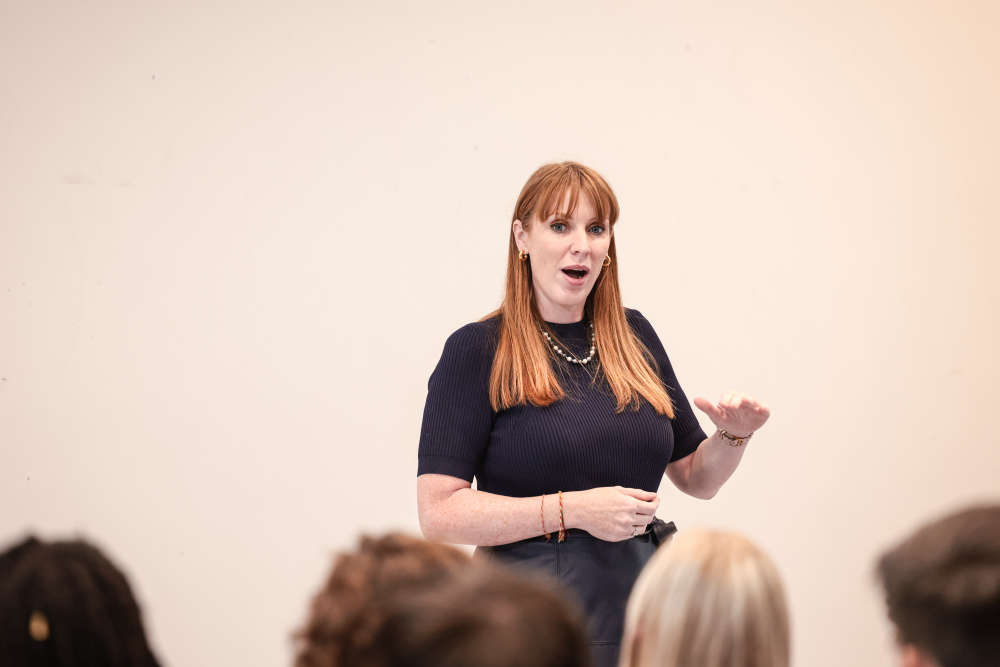
Recent political scandals and inter-party squabbles have raised question marks over who is really in control of our local councils.
Politics across Greater Manchester is dominated by the Labour Party.
With 25 out of 27 MPs and control over nine out of 10 borough councils, the party has a tight grip on town halls across the city-region.
Last year, party officials were sent to Tameside where the ruling Labour group was accused of ‘unacceptable working practices’ after another damning report into its children’s services led to the council’s chief executive quitting and a flurry of cabinet resignations.
Within weeks, Tameside council had a new leader who, alongside others, was put through a party-approved ‘interview process’.
Months later, ousted ex-leader Ged Cooney warned of ‘democracy dying’ as he publicly criticised the national party’s intervention.
But Tameside’s was not the first town hall in Greater Manchester where the Labour Party saw fit to intervene in such a way.
Four out of our 10 councils currently have active campaign improvement boards (CIB), implemented by Labour Party headquarters.
On paper, these boards are teams made up of Labour MPs and councillors from elsewhere who are selected by the party’s National Executive Committee (NEC) to help local activists prepare for election. Exactly what that help entails varies between each borough.
Some say they’ve gone too far, with party officials accused of being ‘hostile’ and ‘bullying’ the elected leaders of our local authorities.
And recent events have led some to ask who is really pulling the strings – the people we elect or the national party they belong to?
Tameside
Trouble had been brewing in Tameside long before the children’s commissioner published the latest scathing report on the council’s failing children’s services in September. The report found leaders reluctant to accept responsibility and politicians too ‘passive’.
Faith was lost in the council’s leadership and under-fire chief executive Sandra Stewart quit the following month. That resignation triggered the national Labour Party to implement a campaign improvement board (CIB) to bring about the ‘culture change’ needed.
The move was welcomed by Tameside’s three MPs, including Deputy Prime Minister Angela Rayner and Business and Trade Secretary Jonathan Reynolds, who together with then-health minister Andrew Gwynne said the intervention would bring ‘stability and focus’.
Just one day after the Tameside’s CIB was announced, Coun Cooney stepped down as leader following a flurry of cabinet resignations.
The CIB then oversaw the re-establishment of the council’s leadership – with Coun Eleanor Wills taking the top job. According to a report from regional party officials, the NEC approved the interview process for the positions of leader, deputy leader and chief whip.
That same report, written in February and later obtained by the Local Democracy Reporting Service, warned of factional fights ‘erupting’.
Four days later, Mr Gwynne, the MP for Gorton and Denton, was sacked as a minister over messages he sent in a WhatsApp group.
The leaked messages from the group titled ‘Trigger Me Timbers’, which led to 12 councillors from Tameside and Stockport being suspended, exposed infighting within Labour locally with some members accused of making anti-Semitic, sexist and racist remarks.
Among the group’s members’ were three councillors who had recently been appointed to the council’s new leadership, leading some, including local Conservative councillor Liam Billington, to question the credibility of the CIB which had overseen their appointments.
The CIB’s involvement in picking the new leadership raised eyebrows at the time, with the Tories suggesting it was undemocratic.
The Conservatives eventually called a vote of no confidence in the new leader, but the motion was inevitably defeated at an extraordinary council meeting in March which saw Coun Cooney take a swipe at the national party’s recent interventions.
The former council leader who was suspended as part of the ‘Trigger Me Timbers’ scandal despite denying any involvement in the WhatsApp group, criticised the NEC’s involvement in Tameside, arguing that it should have no say in who becomes the leader.
“What I want to make clear,” he said, “is that democracy dies when we don’t use it or express it.
“We stood at every election, no matter what party. We then, whatever party is voted in, select a leader and rightly so.”
“What I do have concern about going forward is how we decide the decisions we make,” he added, “because they will only be in line with what the NEC are saying. If you’re not going to follow that line, what will happen is what happened to Ged Cooney.”
Coun Cooney is not the only Tameside councillor to take issue with the national party’s involvement in Tameside council affairs.
In April, Labour councillor Gary Ferguson’s quit the party, describing the NEC’s recent intervention as ‘unacceptable’ and saying that the way the council is being controlled by ‘external forces’ suggests there is a ‘hidden agenda’ undermining the locally elected council.
It followed the resignation of fellow Longdendale councillor Jacqueline North who quit as a councillor all together, as well as the party. She had previously written a scathing letter to Labour members criticising the national Labour party’s involvement locally.
The former Labour councillor, who was replaced by Reform’s first elected representative in Greater Manchester at a by-election last month, went on to push for a change in the local party’s culture. But she said she didn’t believe change would come anytime soon.
Despite the reservations expressed by the Conservative opposition as well as suspended Labour councillors, the current town hall hierarchy have, unsurprisingly, been supportive of the CIB’s intervention, crediting the board with helping to regain stability.
However, a Labour source elsewhere in Greater Manchester say party officials responsible for the CIBs have been ‘hostile’, accusing them of ‘bullying elected leaders’. The source went on to criticise the Tameside’s CIB for effectively pushing Coun Cooney out of office.
Stockport
The Labour Party introduced the concept of CIBs in 2022 with the ‘primary purpose’ said to be about helping ‘Labour groups that require improvement and support to prepare them for future rounds of local government elections and the next general election.’
Later that year, the so-called ‘Jabba the Hutt’ scandal in Stockport, which saw a constituent compared to the grotesque villain from Star Wars in a WhatsApp group containing Labour councillors and employees of the local MP, led to a CIB being set up in the borough.
A Labour source within Stockport explained that the CIB felt those in the Local Government Committee, which helps select Labour candidates for upcoming elections, were actively deselecting candidates without good reason.
Coun Matt Wynne was one Labour councillor deemed ‘unfit’ to stand for re-election in October 2022.
He quit the party as a result, but now serves as group leader of the Edgeley Community Association.
The general consensus in the Labour group in the area was that the CIB did the job and brought about positive change.
However, one Labour source involved in the process said this CIB was more ‘light touch’ than others elsewhere in the region.
An anonymous Labour source added: “Those coming in said ‘you have to be democratic’.
“The CIB is still active, although they aren’t here day to day. It’s a way to stop shenanigans.
“I think it has been a good thing and it’s not there to make decisions, like it has been alleged in Tameside. It’s been positive.”
Bolton
To the north of the city-region, Bolton’s Labour group has had their own CIB for a number of years now. But theirs was not sparked by a scandal like in the boroughs to the south.
The party swooped in to help them use social media better when campaigning as well as benefit from more modern technology use.
However, it is understood that the CIB’s intervention was not wholly welcomed initially. This was due to there being a lack of clarity over why the national party decided to intervene in the first place.
Others suspected the intervention was part of a purge of local left-wing activists who had been critical of Labour nationally, including over a candidate selection row which saw nine leading members of the Bolton North East Constituency Labour Party (CLP) quit.
The CLP was eventually suspended in September 2023 over ‘concerns about its operations’ following an investigation by the party.
The Local Democracy Reporting Service understands that Bolton’s CIB is still technically in place, but it has not been active for several months.
Labour’s Nick Peel, leader of Bolton Council, said: “Bolton was given the assistance of a campaign improvement board. This isn’t about running the council, it’s about how we campaign as a party. We welcome their input.
“They just felt that Bolton’s Labour Party campaigning could improve. As the leader of the Labour group I welcome any assistance that anyone can bring.
“The Campaign Improvement Board didn’t and hasn’t got into Bolton for selection of candidates. They weren’t interested in any of that.
“We wouldn’t turn away any external help.”
Another senior Labour source in Bolton said: “If the 2019 General Election taught us anything, it’s that we were far too complacent.
“We lost what we thought were safe Labour seats, we lost some by few hundreds of votes in the North West, and that should never have happened.
“We can’t take anything for granted, and so I think a bit of a culture change and shift in mindset was necessary to never allow for that complacency again.
“We owe it to the people Labour governments and Labour councils help.”
Wigan
The newest campaign improvement board to be implemented in Greater Manchester is in Wigan. Although the process has only just started, it is understood the incoming CIB came as a surprise to the local Labour group.
The move also raised eyebrows elsewhere given Labour’s overwhelming majority – the reds currently hold 63 out of the 75 council seats – at the town hall which is generally considered to be well run compared to other local authorities in Greater Manchester.
Similarly to Bolton, the CIB is said to be aimed at helping Wigan with more modern methods of campaigning and using social media better. This comes in response to the changes in the way election campaigns are being fought globally.
It was thought that the best time to intervene and train up councillors and party members would be now, given that there have been no local elections in Greater Manchester this year.
Coun David Molyneux, leader of Wigan Council, said: “I know they are in other areas but here it’s about campaigning. So we need to sharpen up on social media activity and more modern methods of campaigning.
“Things are changing quite a bit when it comes to campaigning, but there are no other issues here in Wigan. It’s definitely not something we’re doing that’s wrong per say, but things like the way campaigning worked in the US election has changed things.
“Anything that can help us campaign in a more modern way will be helpful. We are known for being a successful council, so it’s not to do with that.
“We’re quite happy with them coming in here.”
What Labour says
The Labour Party have credited the campaign improvement board in Blackpool as being a success for the North West. A spokesperson explained that in the seaside town, the CIB worked closely with the Labour group and local parties to address campaigning issues.
The outcome of this enabled Labour to not only take control of the Council in 2023, the party said, but also elect the first woman leader in its history.
A Labour spokesperson said: “Campaign Improvement Boards work with Labour Groups to support them to prepare for elections. Investing time and support through this process demonstrates how important Greater Manchester is to the Labour Party at a local and national level.”


 Man sentenced for antisemitic social media post hours after deadly Manchester synagogue terror attack
Man sentenced for antisemitic social media post hours after deadly Manchester synagogue terror attack
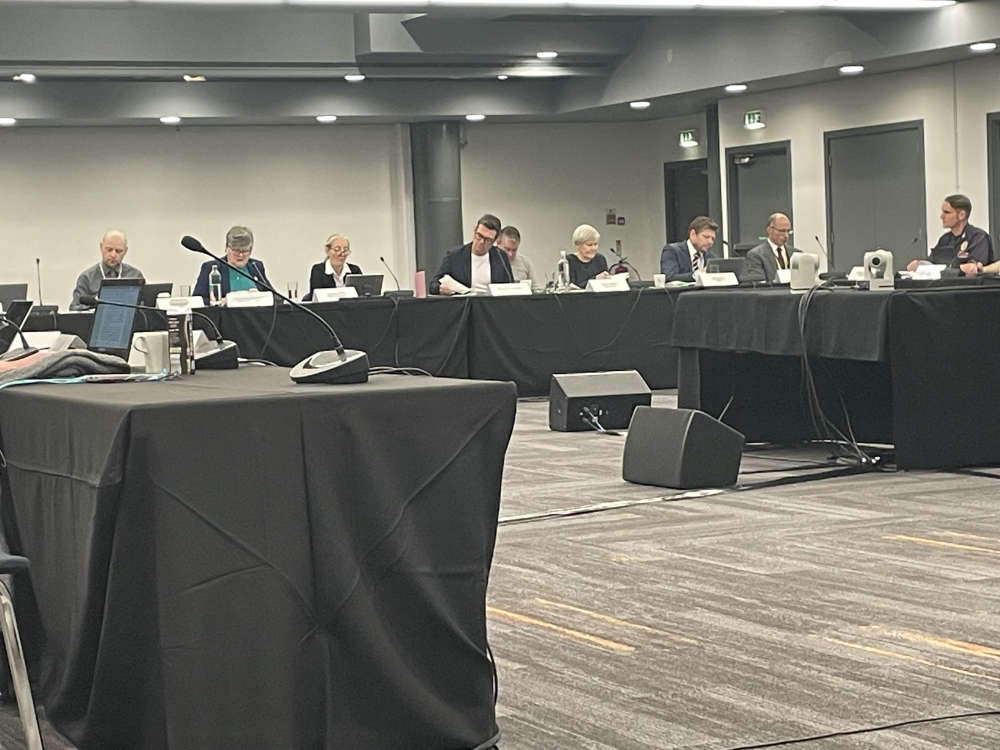 Lack of cash prompts Greater Manchester policing fears as Andy Burnham hits out at Government
Lack of cash prompts Greater Manchester policing fears as Andy Burnham hits out at Government
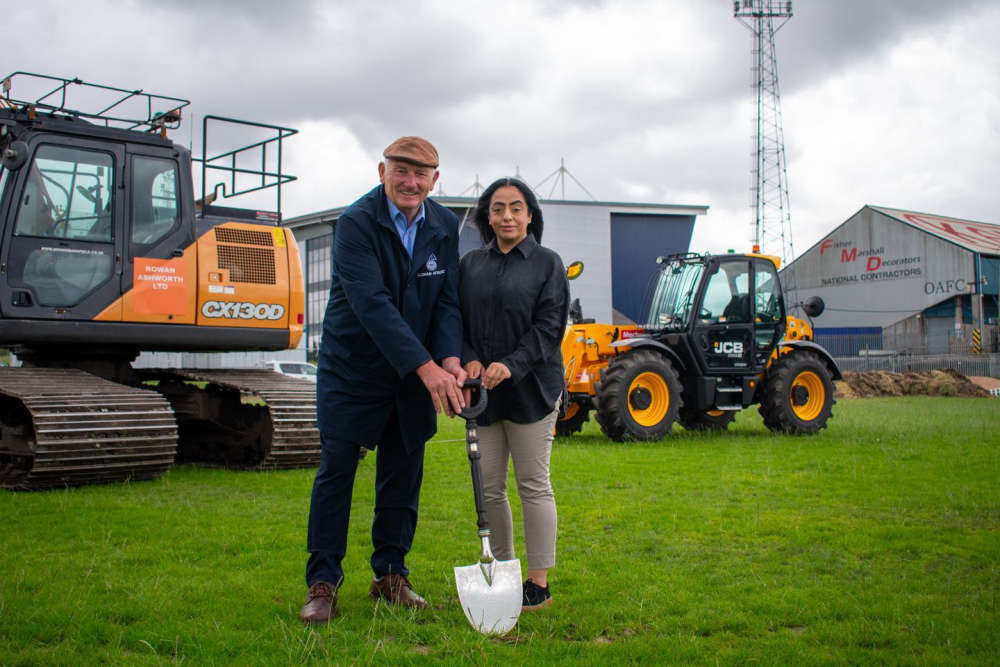 SportsTown project update
SportsTown project update
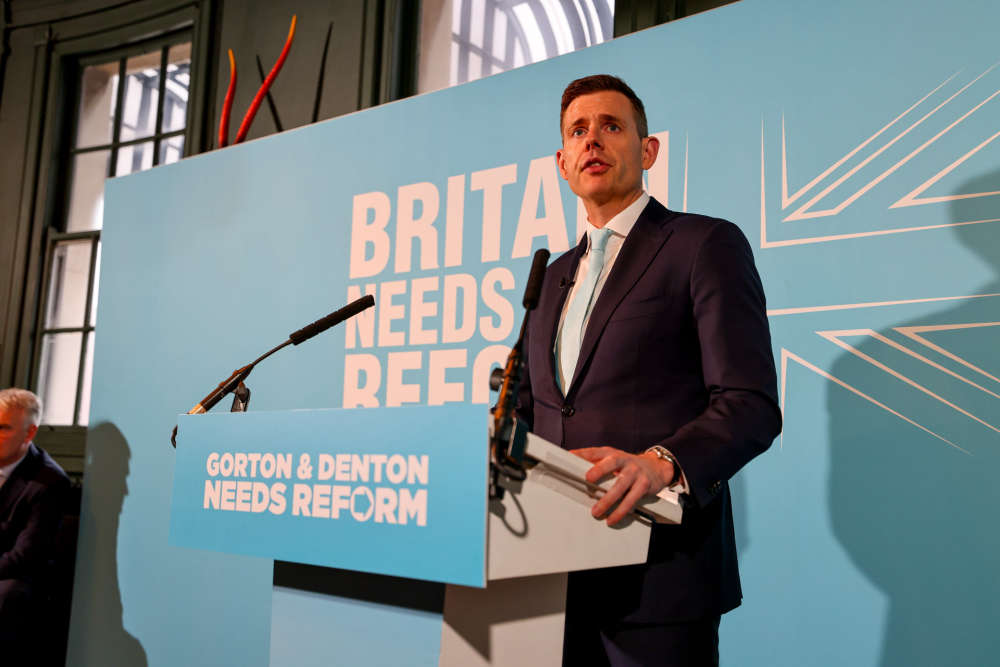 Reform reports Labour to police over alleged misleading by election video
Reform reports Labour to police over alleged misleading by election video
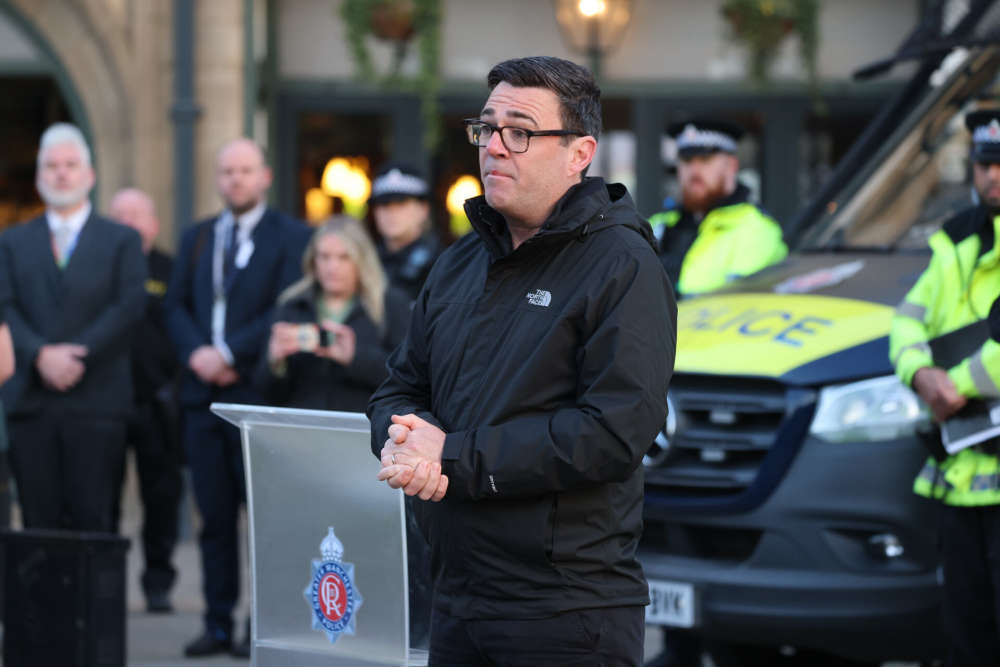 We asked 73 voters if they still back Andy Burnham – this is what they said
We asked 73 voters if they still back Andy Burnham – this is what they said
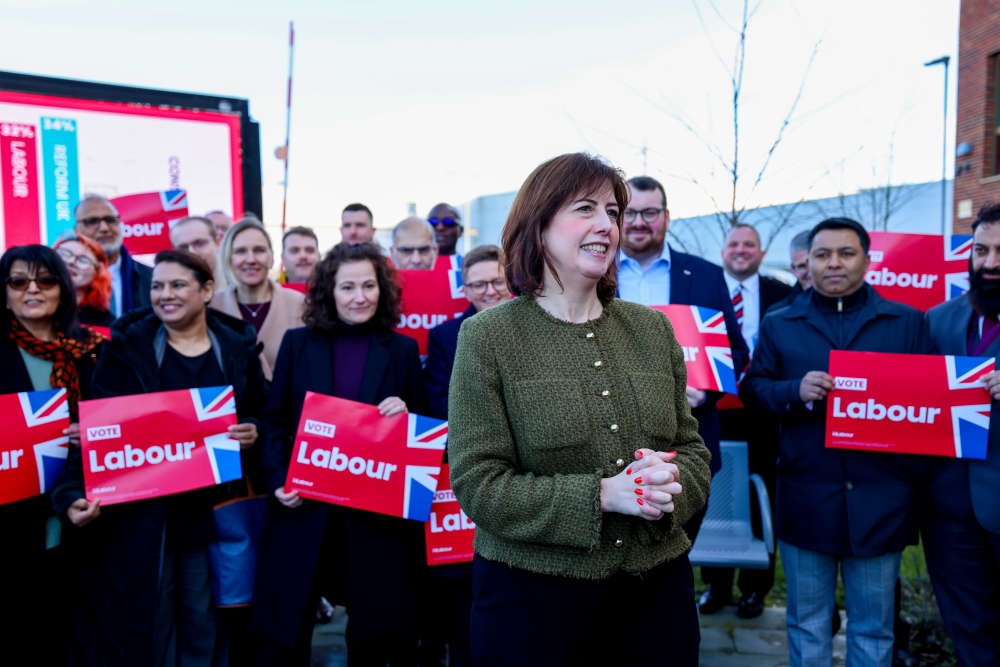 Labour deputy leader launches by-election campaign
Labour deputy leader launches by-election campaign
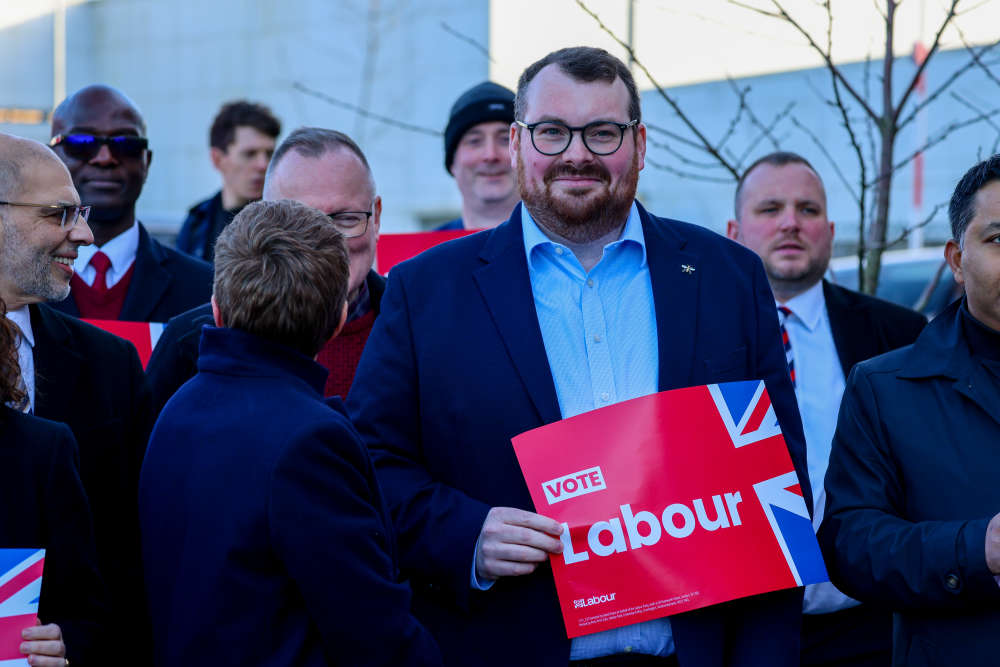 Eamonn O'Brien confirmed as one of the final two Labour candidates in the Gorton and Denton by-election
Eamonn O'Brien confirmed as one of the final two Labour candidates in the Gorton and Denton by-election
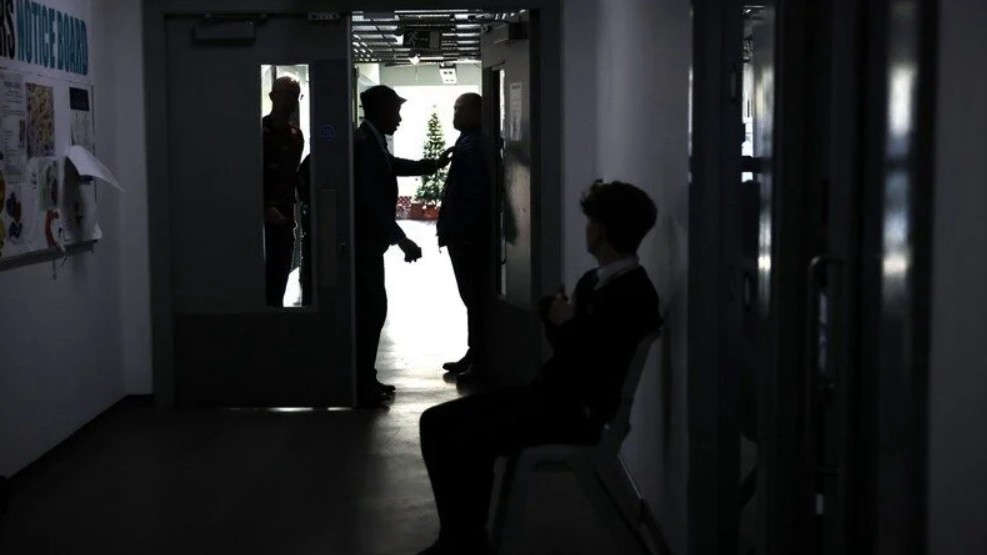 Councillors back free bus passes for homeless children as pressure mounts on Burnham
Councillors back free bus passes for homeless children as pressure mounts on Burnham




Comments
Add a comment